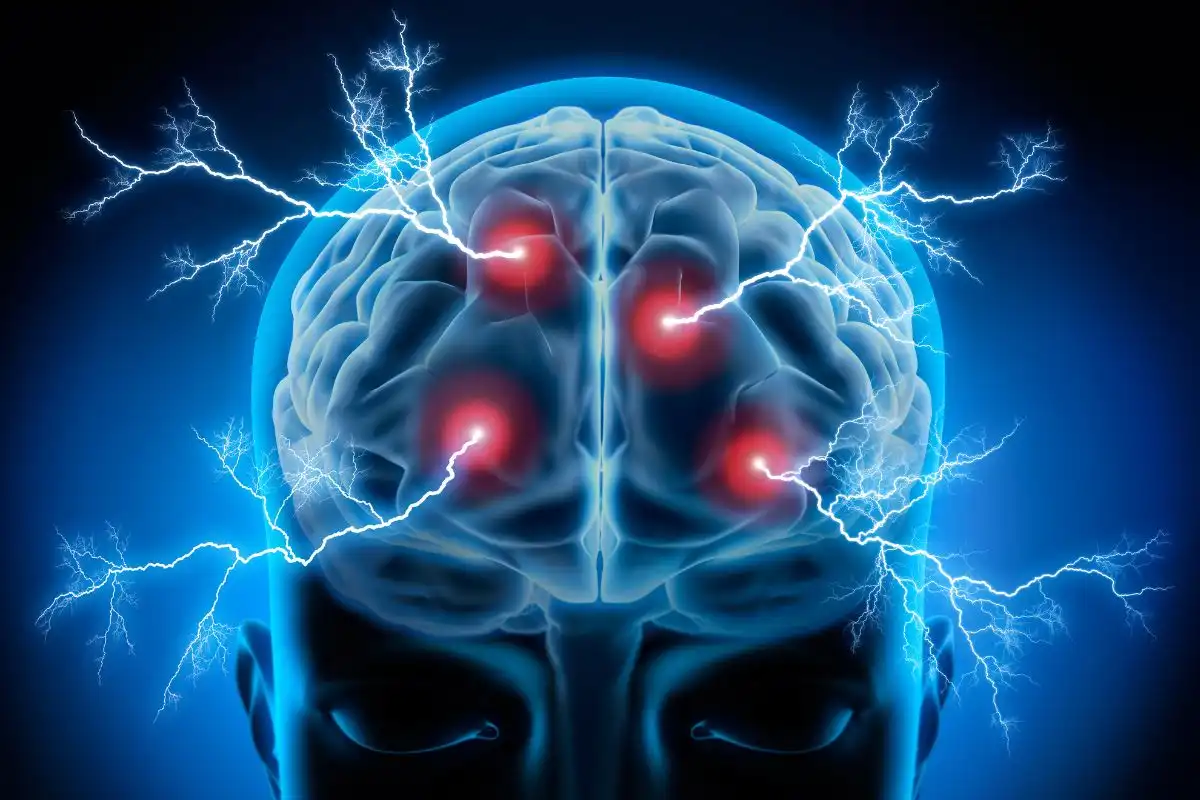Some researchers and clinicians believe autism may be linked to metabolic disturbances, food intolerances, poor nutrition, and problems with the gut microbiome. Dietary interventions attempt to address these issues through elimination diets, probiotics, vitamins, minerals, and other supplements.
Proponents argue special diets may reduce symptoms for a subset of children and adults with ASD. However, nutritional approaches remain controversial and unproven. This article will provide an overview of the rationale behind dietary interventions for autism and the evidence on popular diets like gluten-free/casein-free and ketogenic.
The Gut-Brain Connection
The human gastrointestinal tract contains trillions of microorganisms, collectively known as the gut microbiome. This complex community of bacteria, viruses, and fungi plays an important role in many aspects of health, including brain function.
The gut and brain are connected via multiple pathways, including the vagus nerve, the immune system, tryptophan metabolism, and the hypothalamic–pituitary–adrenal (HPA) axis. Bidirectional communication between the gut and brain is referred to as the gut-brain axis.
The vagus nerve is a major route of communication, transmitting information about the state of the microbiome to the brain. Gut microbes can influence vagus nerve signaling by producing neurotransmitters and neuromodulators.
The gut microbiome also influences the immune system and HPA axis, which are key mediators between the gut and brain. An imbalance of gut microbes has been associated with increased intestinal permeability (“leaky gut”), allowing bacteria and toxins to enter the bloodstream and trigger widespread inflammation. This can impact brain function.
Gut microbes produce many compounds that influence brain function and behavior, including short-chain fatty acids, amino acids like tryptophan, and neurotransmitters like serotonin, dopamine, and gamma-aminobutyric acid (GABA). The microbiome is capable of modulating levels of these important signaling molecules in the body and brain.
Gut Dysbiosis in Autism
Research increasingly shows differences in gut bacteria between autistic individuals and neurotypical controls. Several studies have found less diversity in the gut microbiome of those with autism compared to controls. One study found significantly lower levels of Prevotella, Coprococcus, and Veillonellaceae bacteria in autistic children.
Another study found increased levels of Lactobacillus in autistic children compared to siblings without autism. Higher levels of Clostridium bacteria have also been found in those with autism versus controls. The reasons for these differences are still being investigated but may involve genetics, diet, medication use, and other environmental factors. More research is needed to clarify the connections between gut dysbiosis and autism symptoms.
Food Sensitivities
Children with autism seem to have higher rates of food sensitivities and intolerances compared to neurotypical children. Studies show that up to 70% of children with autism have issues digesting certain foods, leading to gastrointestinal problems like diarrhea, constipation, abdominal pain, bloating, and reflux. The most common food intolerances are gluten, casein, soy, corn, eggs, and nuts.
There are a few theories for why food sensitivities are more prevalent in autism:
- Increased intestinal permeability, also known as “leaky gut syndrome”, allows food particles to enter the bloodstream and trigger immune reactions. Studies show higher rates of impaired gut barrier function in children with autism.
- Immune system dysregulation is common in autism, leading to more inflammatory responses to certain foods. Food intolerances are linked to immune activation.
- Gastrointestinal inflammation and abnormal gut flora seem to play a role as well. Children with autism tend to have more inflammation in the gut lining and an imbalance of good vs bad bacteria. This can make the digestive system more sensitive and reactive.
- There may be a genetic predisposition, as food intolerances tend to run in families. Gene variants linked to autism, such as defects in glutathione metabolism, can increase susceptibility.
Identifying and eliminating problem foods is an important first step in managing autism symptoms. Many parents report improvements in behavior, communication, social skills, and cognition once intolerant foods are removed from the diet. This indicates the gut-brain connection in autism is significant.
Dietary Approaches
Dietary interventions have become an increasingly popular approach for managing symptoms of autism spectrum disorder (ASD). The rationale is that altering nutrition can influence gut health and brain function. Several elimination diets and specialized diets have been studied in ASD.
Elimination diets involve removing foods from the diet that may trigger symptoms or reactions. Common eliminations include gluten, casein, soy, corn, eggs, and nuts. The most researched elimination diet is the gluten-free, casein-free (GFCF) diet. Gluten and casein are proteins found in wheat/grains and dairy that some claim can exacerbate autism behaviors. Research on GFCF diets has shown mixed results. Some studies demonstrate improvements in communication and social behaviors, while others show no significant benefits.
The ketogenic diet is a high-fat, low-carb diet that may reduce inflammation and alter brain metabolism. It involves drastically reducing carbohydrate intake so the body produces ketones for fuel instead of glucose. Some research indicates the ketogenic diet can improve autism behaviors like social functioning. However, the diet can be extremely restrictive and difficult to maintain long-term.
The Gluten-Free, Casein-Free Diet
A gluten-free, casein-free (GFCF) diet involves removing foods that contain the proteins gluten and casein. Gluten is found in grains like wheat, barley, and rye, while casein is found in dairy products.
The rationale behind a GFCF diet is that individuals with autism may have leaky gut syndrome, which allows peptides from gluten and casein to enter the bloodstream and affect the brain. These peptides may act like opioids, interfering with brain function.
Several studies have examined the effects of a GFCF diet in children with autism. In a double-blind, placebo-controlled study published in 2002, significant improvements were found in autistic behaviors among children who followed the diet for 12 weeks compared to those who received a placebo.
However, the research has been mixed overall. A systematic review published in 2008 concluded there was insufficient evidence to recommend the GFCF diet as a treatment for autism. More high-quality studies are needed to determine which individuals may benefit from this dietary approach.
The Ketogenic Diet
The ketogenic diet has gained popularity in recent years as a potential dietary intervention for autism. This very low-carb, high-fat diet aims to put the body into a state of ketosis, where it burns ketones derived from fat as its primary fuel source instead of glucose from carbohydrates.
Some research indicates the ketogenic diet may improve behaviors and symptoms in children with autism spectrum disorder (ASD). One study found significant improvements in social affect and autism mannerisms in children with ASD who followed a ketogenic diet for 6 months compared to those following their normal diet.
The ketogenic diet is thought to benefit ASD in several ways:
- Improving mitochondrial function – Mitochondrial dysfunction has been linked to ASD. The ketones produced during ketosis provide an efficient energy source for the brain and may enhance mitochondrial function.
- Reducing inflammation – A ketogenic diet has been shown to have anti-inflammatory effects which may help address underlying inflammation present in some cases of ASD.
- Increasing GABA – The ketogenic diet may increase the production of GABA, a calming neurotransmitter that is often low in ASD. This may improve symptoms like anxiety.
- Decreasing glutamate – Glutamate is an excitatory neurotransmitter that may be elevated in ASD. The diet may reduce excess glutamate activity.
- Enhancing brain signaling – Ketones provide an efficient energy source for the brain and may improve signaling between neurons.
The ketogenic diet requires close medical supervision, especially for children. It may not be suitable for every child with ASD. However, for some, a ketogenic diet may provide significant improvements in autism behaviors and symptoms. More research is still needed on the efficacy and safety of this dietary therapy.
Other Elimination Diets
Removing additives, preservatives, food dyes, and other ingredients from the diet is another dietary approach some families use for autism. The Feingold diet eliminates artificial colors, flavors, and preservatives. The specific carbohydrate diet (SCD) removes complex carbs. An elemental diet includes only amino acids, simple sugars, vitamins, and minerals.
Some parents report benefits from removing culprit ingredients. However, research on these diets’ effectiveness is limited. Eliminating many foods increases the risk of nutritional deficiencies. Working with a registered dietitian can help create a healthy, balanced diet within the restrictions. Regular lab work monitors for deficiencies.
Supplements
Certain nutritional supplements may help support the health of those with autism spectrum disorder (ASD). Always consult with a doctor before starting any new supplements, especially for a child.
Vitamins and Minerals
Some vitamins and minerals to consider include:
- Vitamin B6 and magnesium – These play important roles in neurotransmitter synthesis and brain function. Studies show some children with ASD have deficits in these nutrients. Supplementation may help improve behavioral symptoms.
- Vitamin D – Many individuals with ASD are deficient in vitamin D. Ensuring adequate sun exposure and/or supplementing with a vitamin D3 supplement may support immune and brain health.
- Zinc – Zinc is important for immune health and digestive function. Supplementing with zinc picolinate may help correct any deficiencies.
- Omega-3 fatty acids – Omega-3s from fish oil help reduce inflammation and support brain development. Look for a quality fish oil supplement high in EPA and DHA.
Probiotics
Probiotics may help improve digestive issues common in ASD by balancing gut bacteria. Some evidence shows probiotics may also lessen irritability and other behavioral symptoms. Look for a high-quality broad-spectrum probiotic supplement.
Conclusion
There is accumulating evidence that the gut microbiome plays an important role in autism spectrum disorder (ASD). Children with ASD often have gastrointestinal issues and an altered gut microbiome composition compared to neurotypical children. This has led researchers to investigate whether dietary interventions that modulate the gut microbiota could improve symptoms of ASD.
The most well-studied dietary approach is the gluten-free, casein-free (GFCF) diet. Multiple studies have found that a GFCF diet reduces gastrointestinal symptoms and improves ASD behaviors in a subset of children. However, the evidence is mixed overall. More research is needed on which ASD children are most likely to respond to a GFCF diet.
The ketogenic diet is also emerging as a promising intervention for ASD. Both animal studies and human trials show the ketogenic diet can reduce autism symptoms. It is hypothesized to work by providing the brain with an alternative energy source in the form of ketone bodies. More research is warranted to determine the optimal implementation of the ketogenic diet for ASD.









